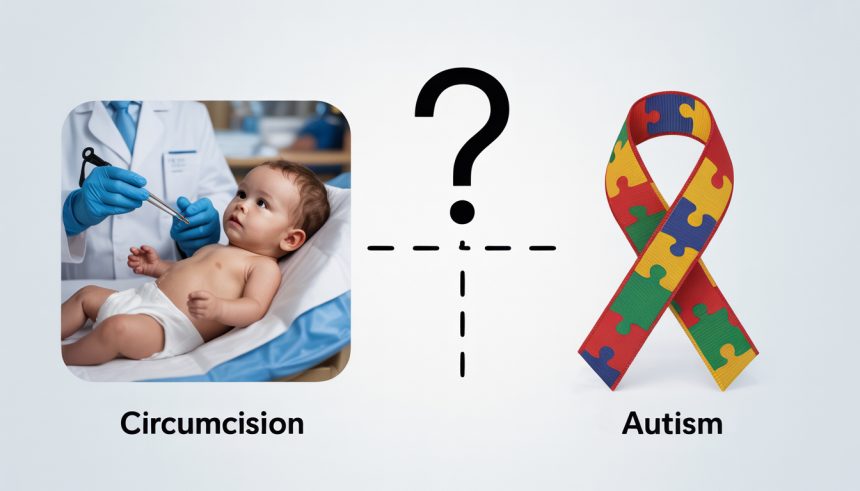A national health debate erupted this week as Health Secretary Robert F. Kennedy Jr. and President Donald Trump reignited controversy over potential links between circumcision, Tylenol, and autism. During a Cabinet meeting, Kennedy spotlighted studies suggesting that boys circumcised at a young age are twice as likely to develop autism—a risk he attributed to routine administration of Tylenol for post-procedure pain relief. The remarks swiftly dominated headlines and underscored a growing split in the nation’s medical and political communities.
RFK Jr.’s Claims on Tylenol and Autism
Kennedy cited two studies indicating a doubled incidence of autism among circumcised boys, connecting this outcome to Tylenol’s use post-surgery. While emphasizing the significance of the association, Kennedy admitted the evidence remains inconclusive: “It’s not conclusive that it causes autism. However, the evidence is so compelling that anyone using [Tylenol] during pregnancy is acting irresponsibly.” These remarks followed similar, high-profile advisories by Kennedy and Trump just weeks earlier, when they cautioned pregnant women to avoid acetaminophen entirely due to suspected autism risk.
Trump Endorses Advisory, Medical Community Pushes Back
President Trump reinforced Kennedy’s warnings during the Cabinet meeting, stating, “I would advise against taking Tylenol if you’re pregnant. And once the baby is born, don’t administer Tylenol.” He clarified, however, that this advice leaves few options for pain relief during pregnancy and infant care—a point some medical groups echoed in voicing concern over potentially depriving patients of safe, approved treatments. Leading organizations like the American College of Obstetricians and Gynecologists and the Society for Maternal-Fetal Medicine contend that current evidence does not support these warnings, and acetaminophen remains their recommended pain treatment for expectant mothers, especially since ibuprofen is not advised after 20 weeks of pregnancy.
What Does the Science Say About Circumcision, Tylenol, and Autism?
Current research on circumcision, Tylenol, and autism is inconclusive. The largest studies Kennedy referenced—a Danish study tracking more than 340,000 boys and a global analysis comparing circumcision rates and autism prevalence—found correlations but did not confirm causation. Many autism researchers argue that it’s extremely difficult to separate the effects of the medication from the reasons it was prescribed, such as underlying pain or fever. The U.S. Food and Drug Administration (FDA) continues to advise prudent use of Tylenol in pregnancy but has found no clear causative link between acetaminophen and neurodevelopmental disorders like autism. BrandonBent.com has previously covered similar health controversies and medical debates. Kenvue, Tylenol’s manufacturer, repeatedly asserts the product’s safety, emphasizing the scientific consensus and the product’s decades-long record.
Fallout in Politics and Public Health
The debate comes at a moment of heightened sensitivity around autism, with the Trump administration proposing new investments in autism research and treatments. Recent FDA news highlights advances such as the approval of leucovorin—a type of folic acid—for managing certain autism symptoms, reflecting the administration’s interest in both investigating possible environmental causes and supporting families affected by autism. Meanwhile, Kennedy’s and Trump’s public statements have disrupted longstanding recommendations and sent shockwaves through both political and medical communities—triggering scrutiny, skepticism, and anxiety among parents.
Doctors’ and Experts’ Warnings
Medical experts urge caution, warning that alarmist statements can have unintended consequences. As Dr. Christine Ladd-Acosta of Johns Hopkins notes, available studies on Tylenol and autism are “conflicting,” and it remains difficult to discern whether medication or the underlying illness contributes more significantly to risk. The World Health Organization and numerous national pediatric organizations continue to support the use of acetaminophen as needed under a doctor’s guidance. Many say more research is needed before major changes to public health guidance are warranted.
What Parents Should Know Now
Health officials advise parents to consult with their physicians about pain management during pregnancy and infancy, weighing benefits and risks rather than acting on preliminary claims. For now, Tylenol remains one of the only painkillers recommended for pregnant women and young children in the U.S. Those seeking more information can read official statements and ongoing research updates from reputable organizations as well as internal analyses at this page. For a broader global perspective, read the latest BBC coverage on this issue.
Sources
















